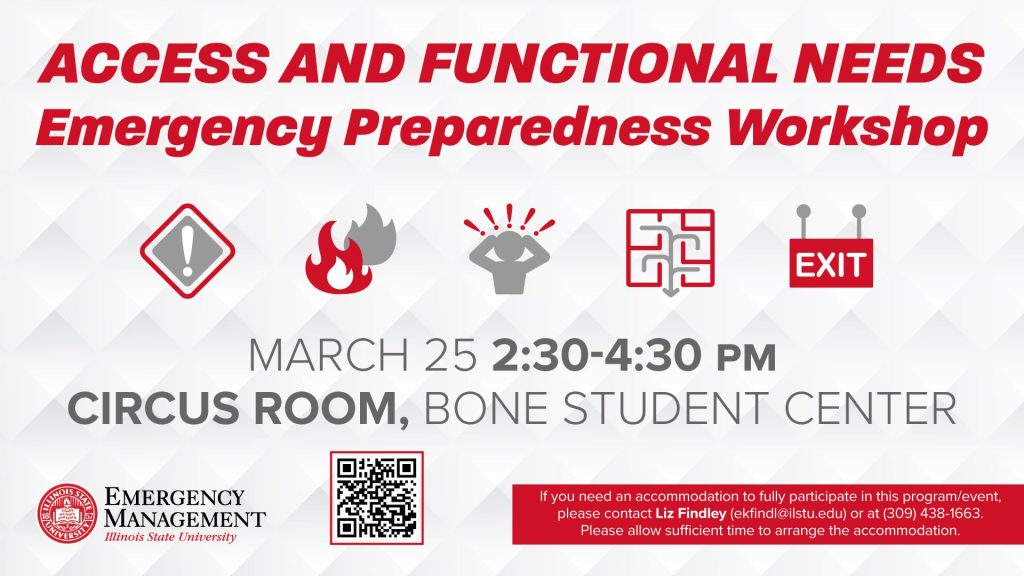Illinois State University’s Emergency Management department invites the campus community to an upcoming Access and Functional Needs (AFN) Emergency Preparedness Workshop on Monday, March 25, 2024, from 2:30-4:30 p.m., in the Circus Room, Bone Student Center. Students, faculty, and staff who may need assistance before, during, and after emergencies, in areas such as hearing, mobility, vision, speech/language, neurodiversity, mental health, and/or health maintenance are strongly encouraged to attend. The workshop is limited to 50 participants and the deadline to register is Wednesday, March 20.
The purpose of the two-hour workshop is to educate and invite feedback on the University’s current AFN-related practices and resources available before, during, and after emergencies. Facilitators will include Environmental Health & Safety, University Police, Office of Equal Opportunity and Access (OEOA), International Engagement, University Housing, Human Resources, Emergency Management, and the Normal Fire Department.
“This workshop is a great opportunity to have open dialogue about emergency plans that many of us take for granted and ensure our emergency response teams are taking all challenges into consideration as we consider best practices,” said Eric Hodges, Illinois State Director of Emergency Management. “We’ll share and get feedback on everything from evacuation practices, storm shelters, and emergency responder access to residence halls for those needing accommodations, to communication options, including the Safe Redbirds App.”
What is AFN?
The term “access and functional needs” means those actions, services, accommodations, and programmatic, architectural, and communication modifications that a covered entity must undertake or provide to afford individuals with disabilities a full and equal opportunity to use and enjoy programs, services, activities, goods, facilities, privileges, advantages, and accommodations in the most integrated setting, in light of the exigent circumstances of the emergency and the legal obligation to undertake advanced planning and prepare to meet the disability-related needs of individuals who have disabilities as defined by the ADA Amendments Act of 2008, P.L. 110-325, and those associated with them. (Department of Justice)


